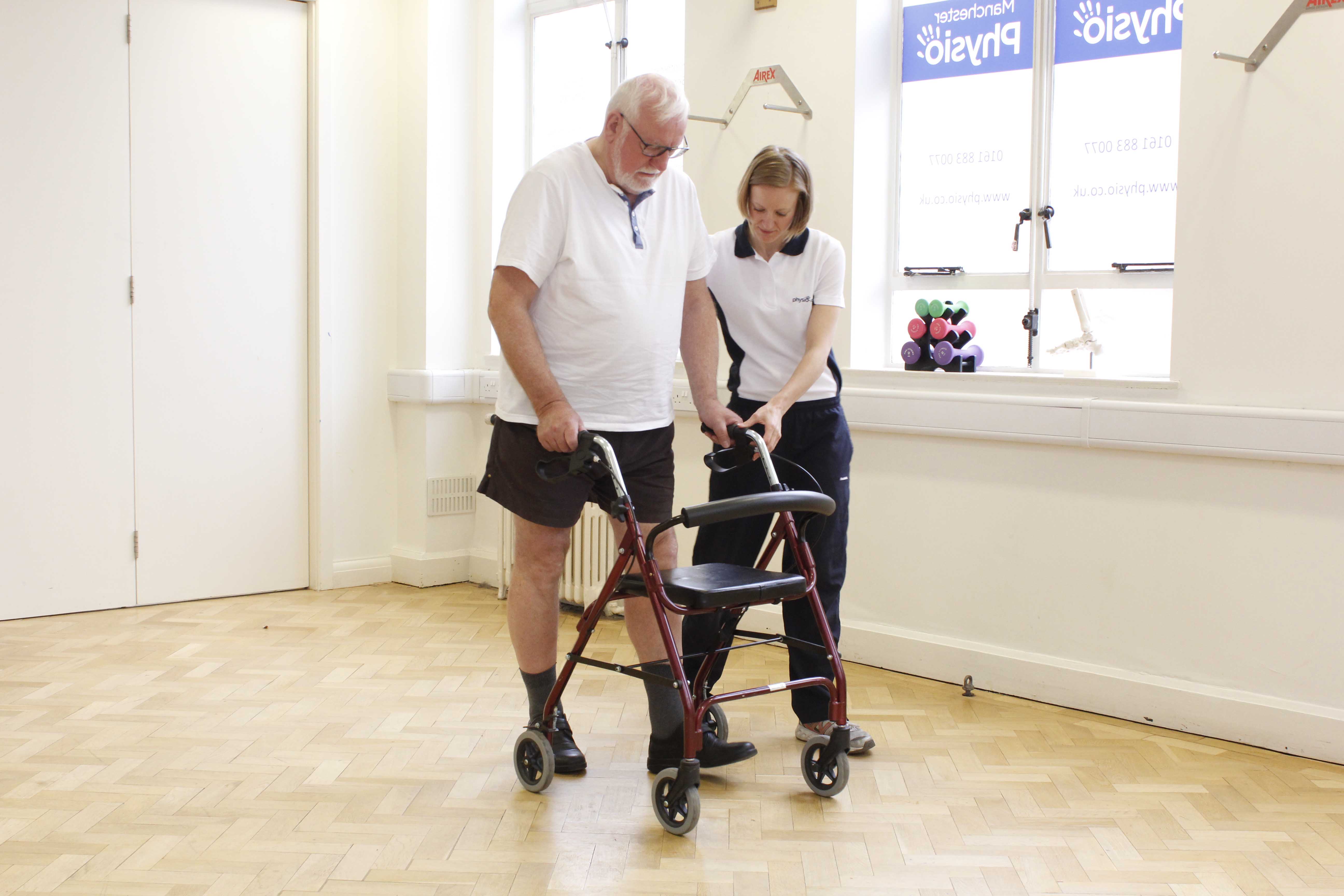What is Amytrophic lateral sclerosis (ALS)?
Amyotrophic lateral sclerosis (ALS) is a degenerative neurological condition causing progressive loss of motor nerves responsible for controlling movement. ALS is a form of motor neurone disease. The loss of nerves in the brain and spinal cord lead to muscle weakness and wasting whichhas a profound effect on functional tasks.
 Above: Specialist physiotherapist closely supervising mobility exercises using a rollator frame
Above: Specialist physiotherapist closely supervising mobility exercises using a rollator frameDiagnosis of ALS
It is sometimes difficult to diagnose ALS as other neurological conditions such as multiple sclerosis have similar symptoms. If your doctor suspects that you have ALS you will be referred to a neurologist who will conduct tests such as electromyography (EMG) and nerve conduction velocity (NCV) that detect electrical activity in muscles. Magnetic resonance imaging (MRI) and transcranial magnetic stimulation (TMS) will also help to confirm a diagnosis.
What are the causes of ALS?
It is not known what causes ALS. Environmental and genetic factors and autoimmune responses (when the immune system attacks normal cells) have been suggested as possible causes of ALS.
What are the effects/symptoms of ALS?
ALS is a progressive condition and affects motor nerves in the brain and spinal cord. Symptoms of ALS vary from person to person but may include:
- Muscle twitching
- Stiffness
- Muscle weakness
- Tight and stiff muscles (spasticity)
- Slurred speech
- Difficulty chewing or swallowing (dysphagia)
- Difficulty forming words (dysarthria)
- Some patients may have alterations in cognitive functions such as depression and problems with decision-making and memory.
Physiotherapy for ALS
Physiotherapy for ALS will help improve your ability with everyday functional tasks such as walking, dressing and driving so that you can maintain your independence for as long as possible. Physiotherapy is very important and should be started as soon as possible, especially during a flare up of symptoms. At Physio.co.uk our specialised physiotherapists understand that a diagnosis of ALScan be very emotional. Physio.co.uk recommendearly intervention to allow time for a rapport to be built up with your physiotherapist which will become invaluable as the disease progresses. Physiotherapy treatment will depend on your current symptoms but may include:
- Exercises to maintain muscle strength for as long as possible.
- Practicing functional tasks such as standing, walking and climbing the stairs. As the disease progresses your physiotherapist may teach you new ways of achieving these functional tasks and provide more support or equipment if necessary.
- Activities to improve fine motor skills such as writing, eating and dressing.
- Stretching and correct positioning to prevent soft tissue shortening.
- Balance training to reduce the risk of falling.
- Advice on transfers to and from the chair, bed, toilet.
- Teaching and advising family and or carers on positioning, transfers and mobility aids.
- Hydrotherapy to help relax and stretch tight muscles and help with mobility.
For more information or to book an appointment please call 0330 088 7800.

 0330 088 7800
0330 088 7800


































